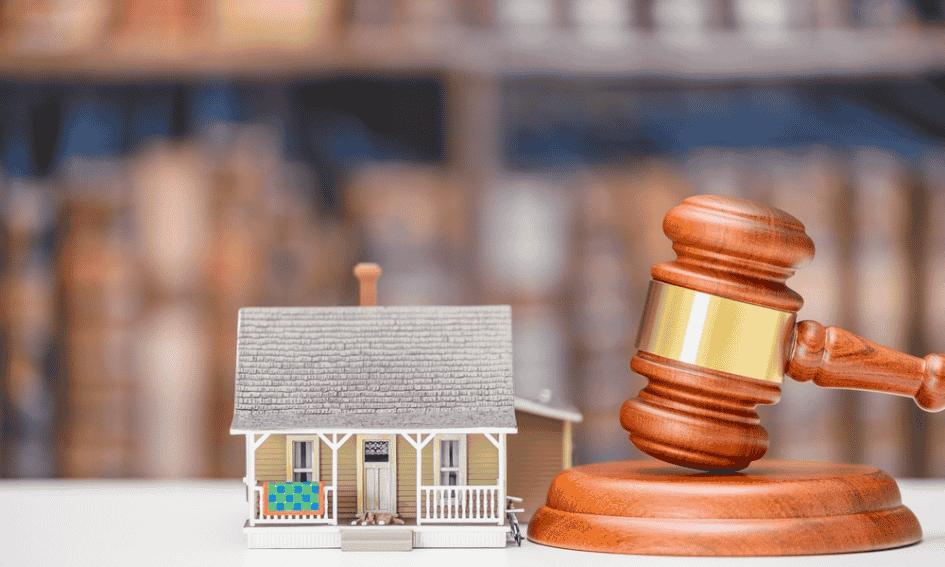Notes and Experiences When Buying Real Estate in Ho Chi Minh City
30 Sep, 2025

The real estate market in Ho Chi Minh City has become a magnet not only for local buyers but also for the growing expat community living and working here. Demand for apartments, houses, and villas continues to rise thanks to infrastructure development, rapid urbanization, and strong long-term investment potential.
For first-time buyers, understanding the right notes and experiences when buying real estate is essential to avoid mistakes and make informed decisions. From navigating the legal framework and preparing finances to choosing the right areas such as Thao Dien, Binh Thanh, District 1, or District 7, every factor plays a critical role in determining investment success.
This article provides a comprehensive perspective, combining practical insights and professional advice to help buyers gain more confidence when entering Vietnam’s most dynamic real estate market.
Legal Framework for Foreign Buyers
For expats, understanding legal regulations is the first step in gaining the right notes and experiences when buying real estate in Vietnam. Under the 2015 Housing Law, foreigners are allowed to purchase apartments in commercial housing projects with a 50-year leasehold, renewable upon expiration. This policy has opened the door for foreign buyers to invest confidently in Ho Chi Minh City.
However, ownership limits still apply. Foreigners may own up to 30% of units in a single condominium building or no more than 10% of landed properties within a project. Direct land ownership is not permitted, meaning buyers can only own apartments or properties attached to land-use rights granted by the State.
Some Vietnamese banks have started offering mortgage options for expats, but requirements are stricter, typically involving proof of income and valid residency documents. Buyers should also prepare for additional costs such as a 2% transfer tax, 0.5% registration fee, and 2% maintenance fund.
Having a clear grasp of the legal framework not only helps foreign buyers avoid risks but also serves as a foundation for making sustainable and profitable investments in Ho Chi Minh City.

Financial Preparation & Hidden Costs
Among the most critical notes and experiences when buying real estate is financial preparation. Beyond the purchase price itself, buyers must account for additional expenses to avoid unexpected burdens.
In addition to the initial payment, consider the following costs:
- Taxes & mandatory fees: 2% transfer tax, 0.5% registration fee, and 2% maintenance fund.
- Management fees: Ranging from USD 0.5 – 1.5 per m² monthly, depending on the project.
- Legal & service costs: Covering notarization, lawyer fees, or real estate consultancy.
- Interior furnishing: For units handed over as bare shell, buyers should budget for furniture and appliances.
- Financial contingency: Allocate 5–10% of the total property value for unexpected expense.
Additionally, some banks in Vietnam provide mortgage loans for expats, though requirements are stricter and loans usually cover only 60–70% of the property’s value. Careful budgeting ensures buyers remain financially secure and well-prepared for long-term ownership.
Choosing the Right Location
One of the key factors in successful property ownership is selecting the right location. According to many notes and experiences when buying real estate, location impacts not only current value but also long-term appreciation potential.
In Ho Chi Minh City, here are the most notable areas to consider:
- Thao Dien (District 2): A popular expat hub with international schools and a premium lifestyle.
- Binh Thanh: Riverside projects with quick access to District 1 and the eastern business hub.
- District 1: The commercial and financial center, ideal for short-term rental investments.
- Tan Binh & District 10: More affordable, close to the airport and shopping centers.
- An Phu – Binh An: Rapidly developing with modern infrastructure and upscale projects.
- District 4 & District 5: Traditional residential areas with competitive prices and good connectivity.
- District 7 & District 8: Fast-growing, featuring mid-range developments and well-planned infrastructure.
Choosing the right district ensures buyers can maximize both investment returns and quality of living.
Checking Developer & Project Credibility
One of the most important notes and experiences when buying real estate is evaluating the credibility of the developer. A reputable developer with strong financial capacity significantly reduces risks related to project delays, construction quality, and legal issues.
When reviewing a project, buyers should consider:
- Track record: How many projects the developer has completed and their quality.
- Handover timeline: Whether previous projects were delivered on schedule or consistently delayed.
- Legal transparency: Building permits, eligibility for foreign ownership, and clear documentation.
- Customer support: Flexible payment plans, after-sales service, and construction warranties.
- Feedback from past buyers: Reviews and experiences from existing residents or investors.
Choosing a reliable developer not only provides peace of mind but also enhances the property’s long-term value.
Contract and Legal Documents
When it comes to notes and experiences when buying real estate, contracts and legal documents are always critical. Many first-time buyers overlook key clauses, which can result in disputes or loss of rights.
Important points to review in the Sales & Purchase Agreement (SPA):
- Payment terms: Clear schedule, methods, and installment percentages.
- Handover commitment: Delivery timeline and whether the unit is fully furnished or bare shell.
- Ownership rights: Ensure the buyer’s name is stated on the Certificate of Ownership (Pink Book).
- Additional costs: Verify maintenance fees, management charges, taxes, and service costs.
- Penalty clauses: Conditions for delays or contract breaches, including compensation.
It is highly recommended to seek assistance from a lawyer or professional real estate agent to review the contract and safeguard all ownership rights.
Property Inspection & Handover
Among the most essential notes and experiences when buying real estate is the inspection and handover stage. This is when buyers must ensure that the property delivered matches what was agreed in the contract.
Key points to check carefully:
- Construction quality: Inspect walls, floors, and ceilings for cracks or water leakage.
- Electrical & plumbing systems: Test outlets, switches, faucets, and drainage.
- Actual size: Measure the property to confirm it matches the contract.
- Furniture & fixtures: For fully furnished units, check condition, brand, and warranty details.
- Legal paperwork: Verify handover minutes, payment receipts, and maintenance documents.
If any issues are found, buyers should request a written record and have repairs completed before signing the handover documents. This step is crucial to protect ownership rights and ensure long-term asset quality.
Common Mistakes to Avoid
When exploring notes and experiences when buying real estate, many buyers—especially first-timers—tend to make common mistakes that affect both investment outcomes and legal rights.
Key mistakes to avoid include:
- Ignoring legal eligibility: Buying units that are not approved for foreign ownership.
- Focusing only on cheap prices: Overlooking location, infrastructure, and appreciation potential.
- Underestimating hidden costs: Forgetting about maintenance, management, taxes, and service fees.
- Choosing unreliable developers: Facing risks of delays or poor construction quality.
- Lacking a long-term plan: Not clarifying goals (residence, rental, or investment) leading to liquidity risks.
Avoiding these pitfalls helps buyers save money, reduce risks, and enjoy a safer property purchase experience.
Tips for Successful Investment
To maximize opportunities in Ho Chi Minh City’s property market, buyers should apply practical notes and experiences when buying real estate tailored to the local context. A clear strategy helps safeguard capital while generating sustainable profits.
Key investment tips include:
- Focus on high-potential areas: Thao Dien, Binh Thanh, District 1, and An Phu – Binh An consistently offer strong appreciation.
- Diversify your portfolio: Combine mid-range and high-end apartments to balance risks and returns.
- Track infrastructure projects: New metro lines, bridges, and shopping centers often drive property values upward.
- Work with experts: Partner with reputable real estate agents or lawyers for accurate guidance.
- Plan long-term finances: Maintain stable capital and avoid over-reliance on bank loans.
With these strategies, buyers can minimize risks, secure ownership, and maximize investment value in Vietnam’s dynamic real estate market.
Conclusion
Ho Chi Minh City continues to prove itself as one of the most vibrant and promising real estate markets in Southeast Asia. With infrastructure growth, rising housing demand, and more open policies for expats, mastering the right notes and experiences when buying real estate empowers buyers to make confident decisions.
From financial preparation and location selection to legal checks and working with reputable developers—every step is vital for ensuring safety and maximizing returns.
If you are looking for a reliable partner, contact VnRenthome today. We provide updated apartment listings, bilingual legal consultation, and end-to-end support from search to handover. Now is the perfect time to turn your dream of owning property in Vietnam into reality.

